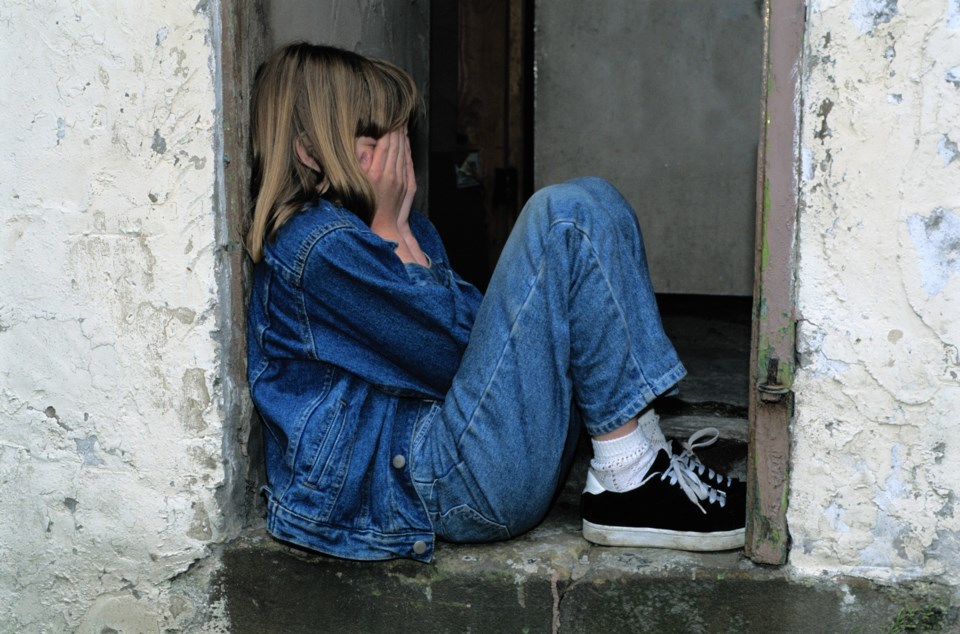While the average Cambridge child lives a carefree life playing with toys and listening to bedtime stories, many other children exist in the midst of violence, their innocence stolen by the harsh life of domestic abuse.
This was a living reality for 90 local children who were forced to run with their guardian from an abusive situation last year and seek refuge at Cambridge’s Haven House, an emergency shelter operated by Women’s Crisis Services of Waterloo Region.
In the last fiscal year, the organization also provided emergency shelter to 115 Cambridge adults, including women, trans and gender diverse adults, fielded 300 local calls to its crisis support line and offered support to 284 people in the city through regional outreach programs.
This is just a small chapter of the alarming story of local intimate partner violence shared with Cambridge and Region of Waterloo councils today as part of a broader bid to get elected officials on board to declare intimate violence an epidemic.
Nearly 40 municipalities in Ontario have already made the move to call on the province to declare domestic violence an epidemic, a movement ignited by a June 2022 landmark inquest into the 2015 deaths of three women in Renfrew County.
The inquest, which released 86 recommendations, with top priority given to declaring intimate partner violence as epidemic.
This call to action on government officials to accept more responsibility to address issues of intimate partner violence is encouraging for victims of abuse, explains Jennifer Hutton, chief executive officer of the region’s women’s crisis services.
“Generally what we're hearing from survivors is that this declaration is validating,” she said. “I really see the declaration as taking an issue that's really, unfortunately for many years, been cloaked in silence and shame and stigma, really bringing it out into the light and acknowledging just how prevalent it is.”
Hutton was one of several delegates addressing the region’s community and health services committee Tuesday afternoon on behalf of the Family Violence Project of Waterloo Region, a 12-partner group working to reduce domestic violence since its inception in 2006.
The committee passed a motion recommending the Region of Waterloo Council declare intimate partner violence and violence against women as an epidemic as well as lobby the province to do the same.
It also called upon council to make intimate partner violence part of the region’s Community Safety and Wellbeing Plan, one of the requests proposed by delegates.
The motion also identified the heightened risks for Indigenous women and girls, emphasizing that they are nearly four times more likely to experience some form of intimate partner violence.
While the subject of domestic violence is an occupational conversation for those who work with victims, or alternately abusers, Hutton maintains it’s time to put more accountability on politicians to escalate the discussion and push for systemic changes to protect victims.
“People that are working in the sector are having conversations every day,” she said, “but when elected officials also have those conversations it adds an additional weight to the issue and level of recognition and, of course, responsibility to move towards action.”
While the use of the word epidemic to describe domestic violence might surprise some, its use is a result of carefully chosen language selected by family members of victims, survivors and experts who participated in the inquest, noted Hutton.
“It's really important to stay true to that language,” she insisted. “When you use a fairly heavy word like epidemic it indicates just how common this issue is. It's a global issue. It's a social issue, an issue that's because of structural factors.”
While attention given to efforts to declare intimate partner violence an epidemic in communities will help move the topic into mainstream conversation, it’s also hoped the push will highlight the need to better equip organizations like women’s crisis services with better resources.
Hutton said her sector has been “chronically underfunded for years” and requires more funding to make necessary changes to prevent intimate partner violence from happening in the first place.
Between 2012 and 2022, Waterloo Regional Police Services (WRPS) responded to more than 66,000 calls related to intimate partner violence, averaging about 6,660 calls each year or 17 per day. Police also laid more than 35,750 charges relating to the same issues during this period – one-quarter of all charges laid. Twenty-four people in the region were victims of homicide, attempted homicide and manslaughter at the hands of an intimate partner.
According to UN Women, domestic violence in homes escalated during the pandemic lockdown and reports that one in three women worldwide faces issues of sexual violence and physical and mental abuse. The organization characterized the phenomenon as the “pandemic shadow”.
There is no mistaking the pandemic shadow has a strong presence here, too, according to Hutton. But she maintains the good news is that more people are aware of the shadow effect and have a better understanding of its local impact.
“Awareness has been growing,” she said. “Whenever we had lockdowns due to the pandemic, there was a lot of discussion and recognition that home is just not safe for everyone, and I think some of those conversations have continued.”
Moments prior to passing the motion, Regional Councillor Rob Deutschmann assured he plans to resurface this topic come budget time to ensure money is allotted to tackling issues of domestic violence.
Regional Councillor Pam Wolf and former Cambridge councillor said her research on violence against women illustrated that societies focused on gender equity experienced less intimate partner violence. And she hopes the region’s work on equity will pay off in reducing domestic violence here.
“I think that’s one of the paths to a solution to try to end violence against women.”



